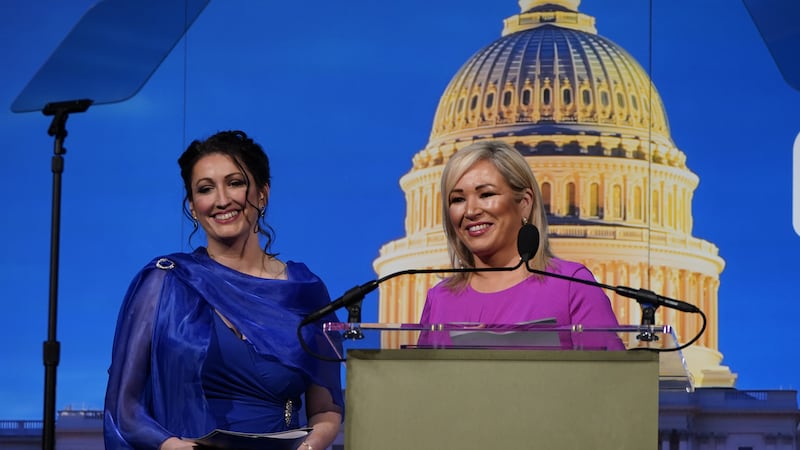THE Tories continue to promise that “we are in this together” sharing the highs and the lows of the recovering recession.
There are those who will have been sceptical from the start that they're going through the same austere hardship that was being inflicted on the masses, and there is growing evidence that we are not all being treated as equals by the first Conservative government for 18 years.
First there was the Inheritance Tax (IHT) fanfare at the budget. “A promise made, a promise kept” bragged the chancellor as it was raised by £350,000 a couple to £1 million.
Unfortunately, you immediately became a second-class IHT citizen if you didn’t have children or grandchildren or didn’t own a property because your IHT threshold per couple didn’t move from £650,000; worse, it was frozen for a further three years to 2021.
Now the 2013 words of Works and Pensions Minister and former Tory Leader Iain Duncan Smith are beginning to look rather hollow regarding next year’s new £148 state pension.
“The single tier pension will mean people have certainty in what they can expect from the State. Thirty-five years’ worth of National Insurance contributions will mean a full basic state pension.”
The government has been back-tracking on that promise for a while; last year the then pensions minister Steve Webb admitted that only 42 per cent of those retiring in the first year of the pension (from April 2016) would get the full payment.
It was also revealed at that time that only from 2018 would more than half the new pensioners receive the full amount.
The situation is now worse, with official predictions that only one in three workers will receive the full £148 flat-rate state pension next year. The new pensions minister Ros Altmann had admitted that last year’s estimate was too high!
That 2018 figure has been downgraded, too – from 52 to 46 per cent (which means an extra 36,000 of those retiring that year will miss out).
The problem affects those who “contracted out” at some point, which many were advised to do as they were also contributing to company pension schemes. It was common to “contract out” of the state second pension.
The government argues that those who opted out will receive those benefits through other schemes; it was expected that individuals who were short of their 35 years contributions would miss out; but those who had reached a total of 35 years after deducting their opt-out years would not.
This is not now the case. “We revise these figures each year to reflect latest assumptions,” claimed a spokesman for the Department of Work and Pensions (DWP). “However, what people get from their state pension does not give the full picture.
“People who spent time contracted-out either paid NI contributions at a lower rate, or some of the NI contributions they paid were used to contribute to a private pension, which they will also benefit from when they retire. Both state and private pensions need to be taken into account.”
A recent BBC4’s Money Box “Live” was given over to pensions; much time was given to the state pension situation as the programme’s host Paul Lewis lamented just how complex and unclear the whole state pension arrangements are.
Money Box “Live” had three experts with Lewis in the studio. Their underlying advice, as well as encouraging those within 10 years of retirement to get a state pension forecast, was to seek specialist help from an independent financial adviser (IFA).
There are ways for those nearing retirement to boost their state pensions, but again is it easier to have an expert guide take you through the pension maze rather than wandering around in circles on your own.
The state pension was not the only worry though, as it was revealed that over £2 billion had been withdrawn from 60,000 pension pots since the new pension freedoms came into play in April.
There were complaints of huge charges to take or move pension money; but more worrying was those unable to access their pension money as their pension provider did not have the facilities to accommodate such requests.
The magazine Which? discovered a huge disparity in the fees charged for income drawdown; fees for a pot of £250,000 over a decade varied between 16K and 26K and even a 50K pot showed a difference of over 3K.
Experts urge savers to add up all the charges before making withdrawals or setting up a drawdown plan to decide whether to stick with your current provider or move. But don’t forget that moving might not come cheap with exit charges certain to apply.
Plans to allow those who had bought an annuity to be able to sell it back and receive a lump sum in return have been put back for another year at least.
:: Darren McKeever (dmckeever@ wwfp.net) is Northern Ireland adviser of Worldwide Financial Planning, which is authorised and regulated by the Financial Services Authority. For a free, no obligation initial chat about your individual finances, call 028 68632692, e-mail info@ wwfp.net or click on www. wwfp.net. Follow us on Twitter: @WorldwideFP.







